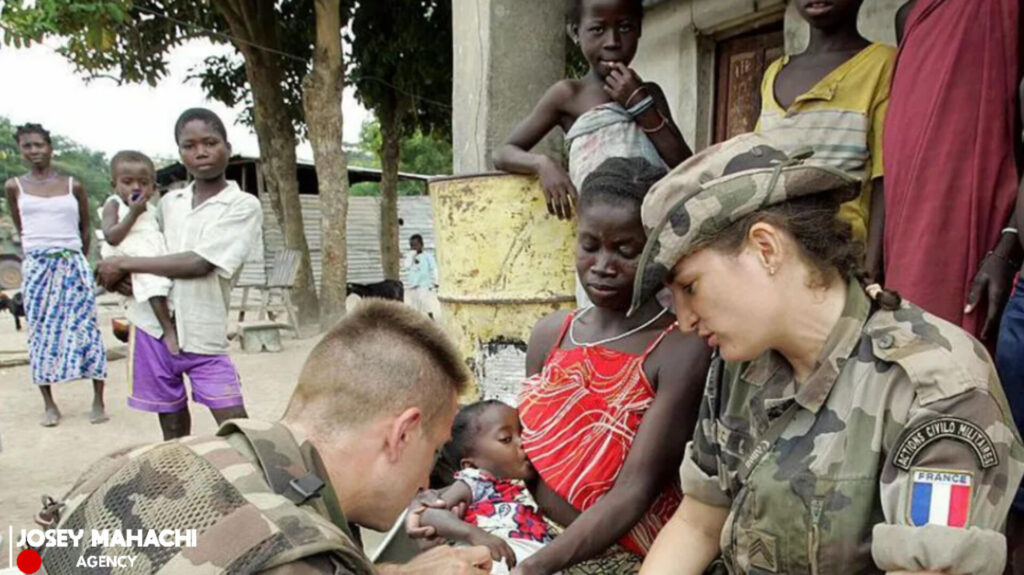By : Lloyd Mahachi
Ivory Coast’s President, Alassane Ouattara, has announced that French troops will be withdrawing from the West African nation. This move is seen as a reflection of the modernization of Ivory Coast’s armed forces, which have been strengthening their capabilities in recent years.
The withdrawal of French troops is expected to be completed by the end of 2025. The military infantry battalion of Port Bouét will be handed over to Ivorian troops, marking a significant shift in the region’s military landscape.
The decision to withdraw French troops from Ivory Coast is part of a broader trend of France reducing its military presence in West Africa. In recent years, France has pulled its soldiers out of Mali, Burkina Faso, and Niger, following military coups and growing anti-French sentiment in these countries.
The government of Chad, a key Western ally in the fight against Islamic militants, has also ended its defense cooperation pact with France. This move has significant implications for regional security and highlights the need for new partnerships and alliances.
Senegal, which is home to 350 French military personnel, has announced that it will be closing French military bases on its territory by the end of 2025. This decision is seen as a significant blow to France’s military presence in West Africa and marks a new era in Senegal’s relations with France.
France’s reduced military presence in West Africa is seen as an opportunity for other global powers to increase their influence in the region. Russia, in particular, has been making inroads in West Africa, deploying mercenaries to help countries fight off jihadist insurgents.
Military leaders in Niger, Mali, and Burkina Faso have moved closer to Russia since kicking out French troops from their countries. This shift in alliances has significant implications for regional security and highlights the need for new partnerships and alliances.
France, however, will retain a small presence in Gabon, where it has a long-standing military partnership. This partnership is seen as a key component of France’s military strategy in West Africa and will likely play a significant role in the region’s security dynamics.
The withdrawal of French troops from Ivory Coast is also seen as a sign of the country’s growing independence and self-reliance. For over three decades after gaining independence from France, Ivory Coast was known for its religious and ethnic harmony, as well as its well-developed economy.
However, an armed rebellion in 2002 split the nation in two, and peace deals alternated with renewed violence as the country slowly edged its way towards a political resolution of the conflict. Despite the instability, Ivory Coast remains the world’s largest exporter of cocoa beans, and its citizens enjoy a relatively high level of income compared to other countries in the region.
As France reduces its military presence in West Africa, it is likely to devise a new military strategy that takes into account the shifting landscape of the region. Political watchers believe that France has been making efforts to revive its waning political and military influence in Africa, but it now appears to be focusing on downsizing its military ties with West African countries.
This move is expected to sharply reduce France’s permanent troop presence on the continent, marking a significant shift in the region’s military dynamics. With the withdrawal of French troops from Ivory Coast, the country is poised to take a more prominent role in regional security affairs, working closely with other West African nations to address common security challenges.
The implications of France’s reduced military presence in West Africa are far-reaching and will likely have significant impacts on regional security, economic development, and political stability. As the region navigates this new era, it is clear that new partnerships and alliances will be forged, and the role of external powers will continue to evolve.
Editor : Josephine Mahachi

